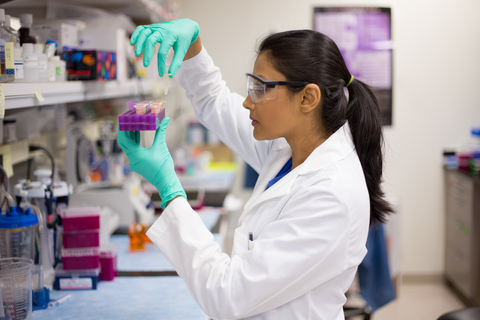Ethnic diversity in cancer genomics workshop

The “Ethnic Diversity in Cancer Genomics” workshop, funded by MRC Proximity to Discovery and facilitated by the University of Birmingham’s India Institute, took place on January 30th 2018, bringing together scientists and clinicians from India, Kenya, Uganda and the UK.
The University of Birmingham reports the workshop, facilitated by the newly launched India Institute, explored ideas to further epidemiological, clinical and genomic research in breast, ovarian and uterine cancer, the three most common cancers in women of non-Caucasian ethnicity.
Breast and ovarian cancer occurs a decade earlier in Indian women than in women in the UK with clear implications for screening and prevention efforts. As most currently available data comes from studies in Caucasian women, there is little information to help manage women from diverse ethnic backgrounds in relation to differences in their inherited risks of cancer and in the ways that their cancers develop.
Birmingham and the West Midlands have a large, ethnically diverse population and the region is an ideal setting for studying the causes and behaviour of cancers in these different ethnic groups.
The workshop highlighted the current state of research at the molecular and clinico-pathological level in the UK, India and Africa. These presentations were followed by a roundtable discussion to take forward ideas for collaborations initially between India and UK to investigate the clinical and genomic differences in cancers of women in the Punjab region of India in comparison to West Midlands women of Punjabi descent. Members of the local communities were also invited to engage in the session to explore how best this research can reach these communities.
Once the infrastructure is in place in India for sample collection and molecular analysis the study will be expanded to include other ethnicities, more specifically women of African heritage, employing a similar logistical approach.
The expected benefit of this research is early detection, prevention and treatment of disease. Furthermore, it will enable capacity building for cutting edge biomedical research in India as well as generate knowledge relevant to women of Indian descent in the UK and worldwide.








